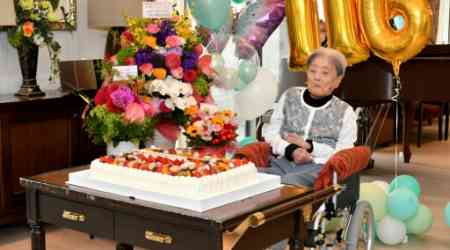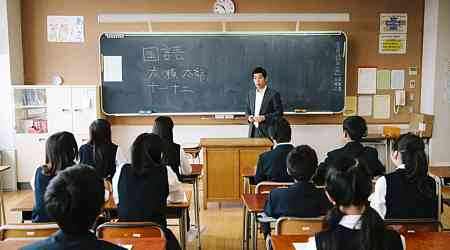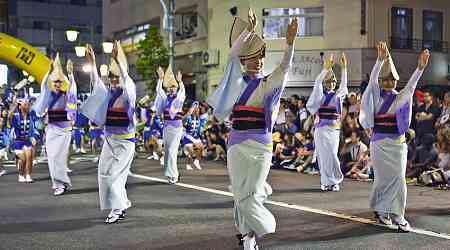There is a Japanese proverb that means making an already strong person or thing even stronger.
It is also the title of an NHK serial drama that aired last year, "Tora ni Tsubasa" (adding wings to a tiger), based on the true story of Yoshiko Mibuchi, one of Japan's first female lawyers in prewar Japan who later became a judge after World War II.
The series, broadcast from April 1 to Sept 27, coincided with a milestone in the fight against gender inequality, as women surpassed 30 percent of successful applicants in the 2024 bar examination for the first time in its history.
In Japan's legal professions, as in other sectors, women's advancement has been slow, even 84 years after Mibuchi and two other female candidates became lawyers.
But Japanese women in 2024 took the two top positions for lawyers and public prosecutors -- president of the Japan Federation of Bar Associations (JFBA) and prosecutor-general, the head of the Public Prosecutors Office.
Women accounted for 30.21 percent of successful bar exam applicants, with 1,111 males and 481 females passing. The total number of examinees was 3,779, a decrease of 149 from 2023.
"It's a step forward in correcting gender biases in the legal community," one legal professional said.
According to the Japan Women's Bar Association, women were barred from legal professions until the Attorneys Act was revised in 1936, allowing them to take the higher judicial examination. Mibuchi, Masako Nakata and Ai Kume passed the exam in 1938 and became lawyers in 1940.
When the former "national bar examination" was held for the first time in 1949, only a handful of women were among the approximately 250 successful applicants, according to Justice Ministry data. Mibuchi became one of Japan's first two female judges that same year, following the enforcement of the country's new Constitution two years earlier.
Starting in the 1960s, the number of women passing the bar exam grew to between 20 and 30 annually, with the ratio reaching 20 percent by the 1990s. The new national bar exam was introduced in 2006, and since 2020, women have accounted for over 25 percent of successful candidates.
Thirty percent is often seen as the "critical mass," the point at which a minority can drive meaningful change within an organization. The ministry aims to increase the proportion of women prosecutors to 30 percent by the end of fiscal 2025, up from 27.2 percent in March 2023.
"I am truly delighted" with the 2024 bar exam results, said Reiko Fuchigami, 70, who took up the JFBA presidency in April, becoming the first woman from the three legal professions of public prosecutors, judges and attorneys to hold the position.
Fuchigami passed the bar exam in 1980 when the ratio of successful female applicants topped 10 percent for the first time.
While her male peers, during a one-year legal training period, quickly found jobs, she barely landed one just before the end of the program as she was told by law firms that she visited that they did not hire women. "It was demoralizing," she recalled.
Among the three legal professions, the ratio of women is highest for prosecutors, followed by judges and attorneys. And for public prosecutors, where the ratio approaches 30 percent, Naomi Unemoto, 62, was appointed prosecutor-general in July 2024.
Although the ratio of female lawyers has recently reached 20 percent, challenges remain, including income inequality stemming from companies' reluctance to appoint women as corporate lawyers. Additionally, there is a need to foster a workplace culture that supports women continuing their careers after childbirth.
"It's important not to lose opportunities for women to excel," Fuchigami said.
Gender imbalance in the legal professions creates "differences in sensitivity between men and women about violence against women and real-life experiences such as the time and economic costs of childrearing," said Toko Teramachi, a 56-year-old lawyer familiar with sex crimes. In sex crimes and divorce cases, there are factual findings that are sometimes at odds with reality, she said.
Teramachi said the judiciary has a role to play in safeguarding the human rights of minorities excluded from measures determined by majorities.
As more women experience unfair treatment or discrimination, it is important that "a sensibility toward minority people grows" through an increase in their presence in the legal community.



























